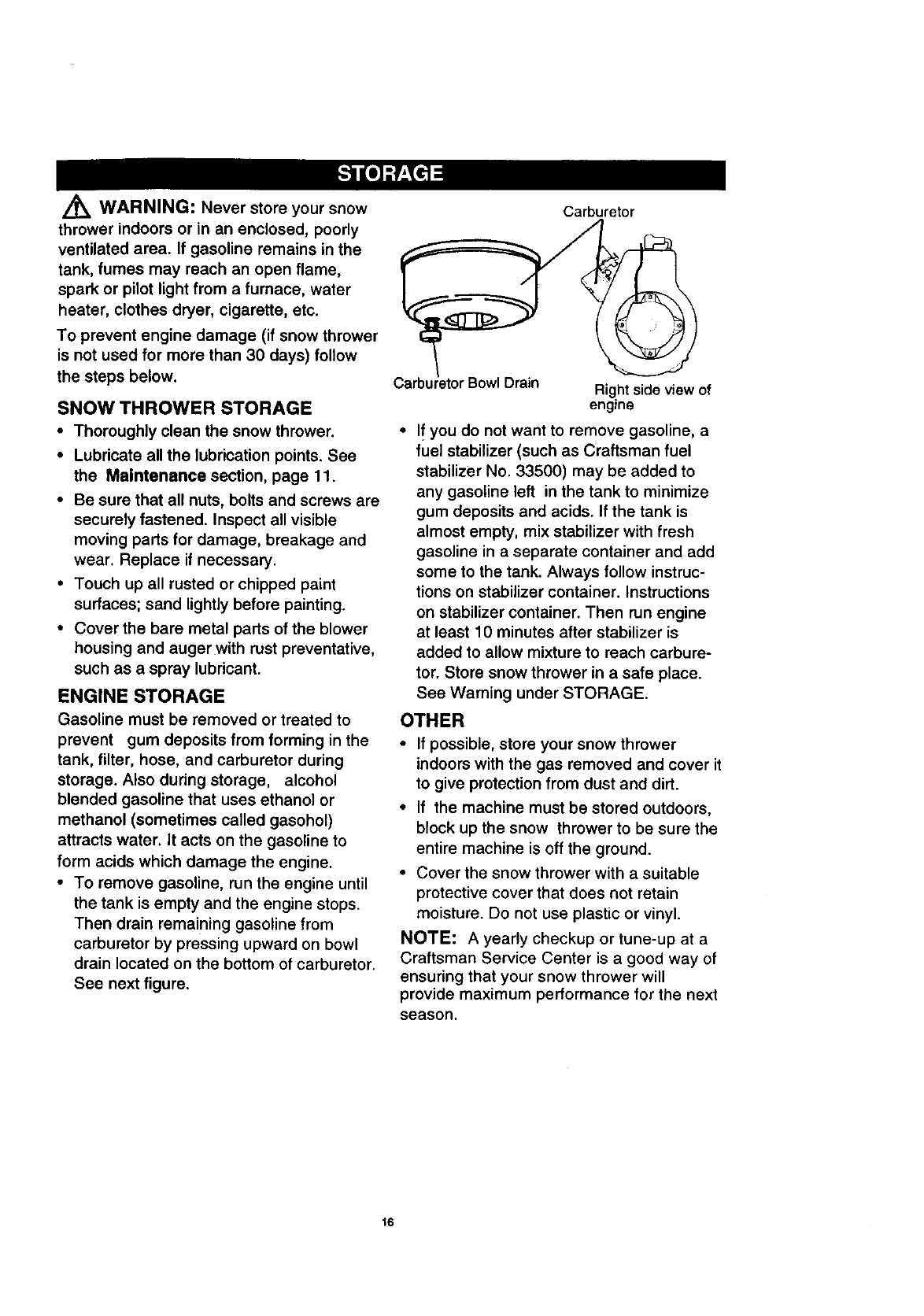
Z_ WARNING: Never store your snow
thrower indoors or in an enclosed, poorly
ventilated area. If gasoline remains in the
tank, fumes may reach an open flame,
spark or pilot light from a furnace, water
heater, clothes dryer, cigarette, etc.
To prevent engine damage (if snow thrower
is not used for more than 30 days) follow
the steps below.
SNOW THROWER STORAGE
• Thoroughly clean the snow thrower.
• Lubricate all the lubrication points. See
the Maintenance section, page 11.
• Be sure that all nuts, bolts and screws are
securely fastened. Inspect all visible
moving parts for damage, breakage and
wear. Replace if necessary.
• Touch up art rusted or chipped paint
surfaces; sand lightly before painting.
• Cover the bare metal parts of the blower
housing and auger with rust preventative,
such as a spray lubricant.
ENGINE STORAGE
Gasoline must be removed or treated to
prevent gum deposits from forming in the
tank, filter, hose, and carburetor during
storage. Also during storage, alcohol
blended gasoline that uses ethanol or
methanol (sometimes called gasohel)
attracts water, it acts on the gasoline to
form acids which damage the engine.
• To remove gasoline, run the engine until
the tank is empty and the engine stops.
Then drain remaining gasoline from
carburetor by pressing upward on bowl
drain located on the bottom of carburetor.
See next figure.
Carbu
Carburetor
Drain Right side view of
engine
I! you do not want to remove gasoline, a
fuel stabilizer (such as Craftsman fuel
stabilizer No. 33500) may be added to
any gasotine left in the tank to minimize
gum deposits and acids. If the tank is
almost empty, mix stabilizer with fresh
gasoline in a separate container and add
some to the tank. Always follow instruc-
tions on stabilizer container. Instructions
on stabilizer container. Then run engine
at least 10 minutes after stabilizer is
added to allow mixture to reach carbure-
tor. Store snow thrower in a safe place.
See Warning under STORAGE.
OTHER
• If possible, store your snow thrower
indoors with the gas removed and cover it
to give protection from dust and dirt.
• If the machine must be stored outdoors,
block up the snow thrower to be sure the
entire machine is off the ground.
• Cover the snow thrower with a suitable
protective cover that does not retain
moisture. Do not use plastic or vinyl.
NOTE: A yearly checkup or tune-up at a
Craftsman Service Center is a good way of
ensuring that your snow thrower wilt
provide maximum performance for the next
season.
16


















